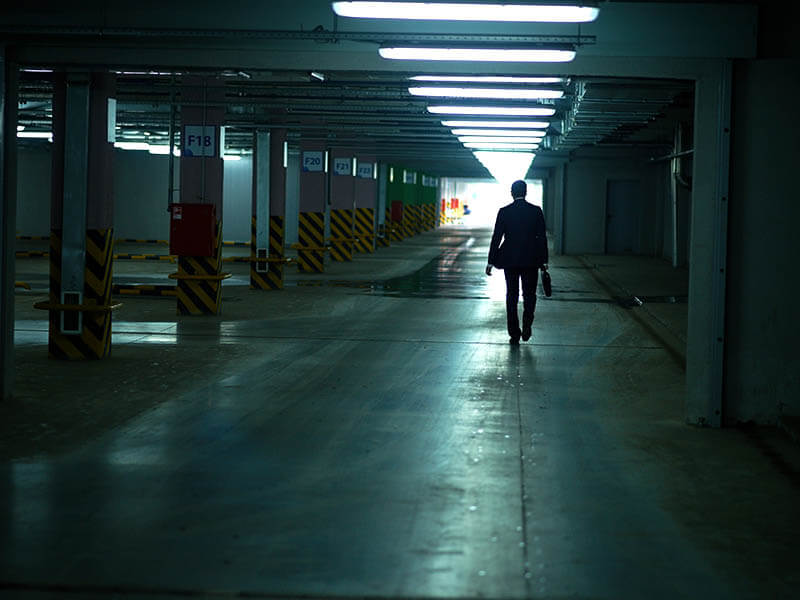
Injuries sustained in a parking lot are generally held compensable in Colorado. This is because parking lots are normally considered part of the employer’s premises. Parking lots are usually owned and maintained by the employer or they are considered provided by the employer as a fringe benefit to the employee. However, there are a few factors that could make an injury sustained in a parking lot a deviation from employment, and not a compensable injury. There are also some potential defenses to consider that can limit or reduce liability.
One factor to consider is whether an employer provides a designated parking lot or garage for employees. If an employer pays for employees to park in a certain lot or provides parking at a reduced rate in a certain area, this is a designated area for the employee to park. Injuries sustained by employees in this parking lot would generally be compensable. If an employee chooses to park in a different lot than the one designated or provided by the employer, then any injuries they sustain in that other lot would generally not be compensable.
If the employee is not simply walking from their car into work but instead detours in the parking lot for a personal activity, this could be a deviation and sever liability for the injury. The employee would need to be engaging in an activity that is for the employee’s sole benefit at the time of the injury. For example, some cases have held that an employee showing a co-worker a dance move or an employee changing the oil in his car are performing distinctly personal tasks and injuries sustained while performing these tasks in the parking lot were not compensable claims.
Another deviation could be a deviation in route to accomplish a personal task. For example, if the employee chose to walk across the street to get coffee before coming into work and because of this the employee was injured while taking a different route, the employee might be on a deviation. The issue would be whether this deviation was reasonable under the personal comfort doctrine (discussed below) or if a more reasonable option existed, i.e. closer coffee shop. This is a fact specific analysis that will depend on how far the deviation was, whether the deviation was reasonable, credibility of the employee, etc.
There are exceptions to this standard for the personal comfort doctrine. The personal comfort doctrine considers that employees must tend to general necessities of life while at work, i.e. eating and restroom breaks. An employee injured in the parking lot because they walked back to their car to grab their lunch would be compensable despite the fact that the employee getting lunch from their car is for the employee’s sole benefit. The personal comfort doctrine generally only applies to necessities and would not extend to non-necessity items, like an employee’s iPod.
Determination of compensability of an injury sustained in a parking lot depends solely on the exact facts of the case. Therefore, it is extremely important to document the exact position of the employee at the time of the injury, where they were coming from, where they were going, why they were coming and going, and if they were in the area they should have been.
Here are some key questions that need to be addressed during the initial investigation of this injury:
The questions above will help determine whether the employee was engaged in a deviation that is not covered by the personal comfort doctrine or whether they are performing a distinctly personal tasks for their sole benefit. This could result in a viable defense to what was otherwise a compensable injury.
Respondents may also be able to limit or reduce their liability for an injury sustained in a parking lot if the parking lot is owned or maintained by a third-party and the injury is the result of that third-party’s negligence. Examples include a third-party owner failing to repair potholes or defects that resulted in an employee tripping and falling or a third-party snow removal company failing to properly apply ice melt that resulted in an employee slipping and falling. If the employer does not own and maintain the parking lot and the injury is the result of negligence on the part of a third-party, there is potential for a subrogation claim. Respondents might still be liable for workers’ compensation benefits but they may be able to recoup at least a portion of the benefits they pay against the third-party. This issue should be investigated right away because detailed documentation of the parking lot hazard will be essential to maintain the claim against the third-party.
The determination compensability for an injury sustained in a parking lot is fact specific. Clear documentation and an initial through investigation of the facts will be crucial to successfully defend an injury if it involved a deviation or personal task.
For further questions on this topic, please contact one of our attorneys at 720-488-9586.